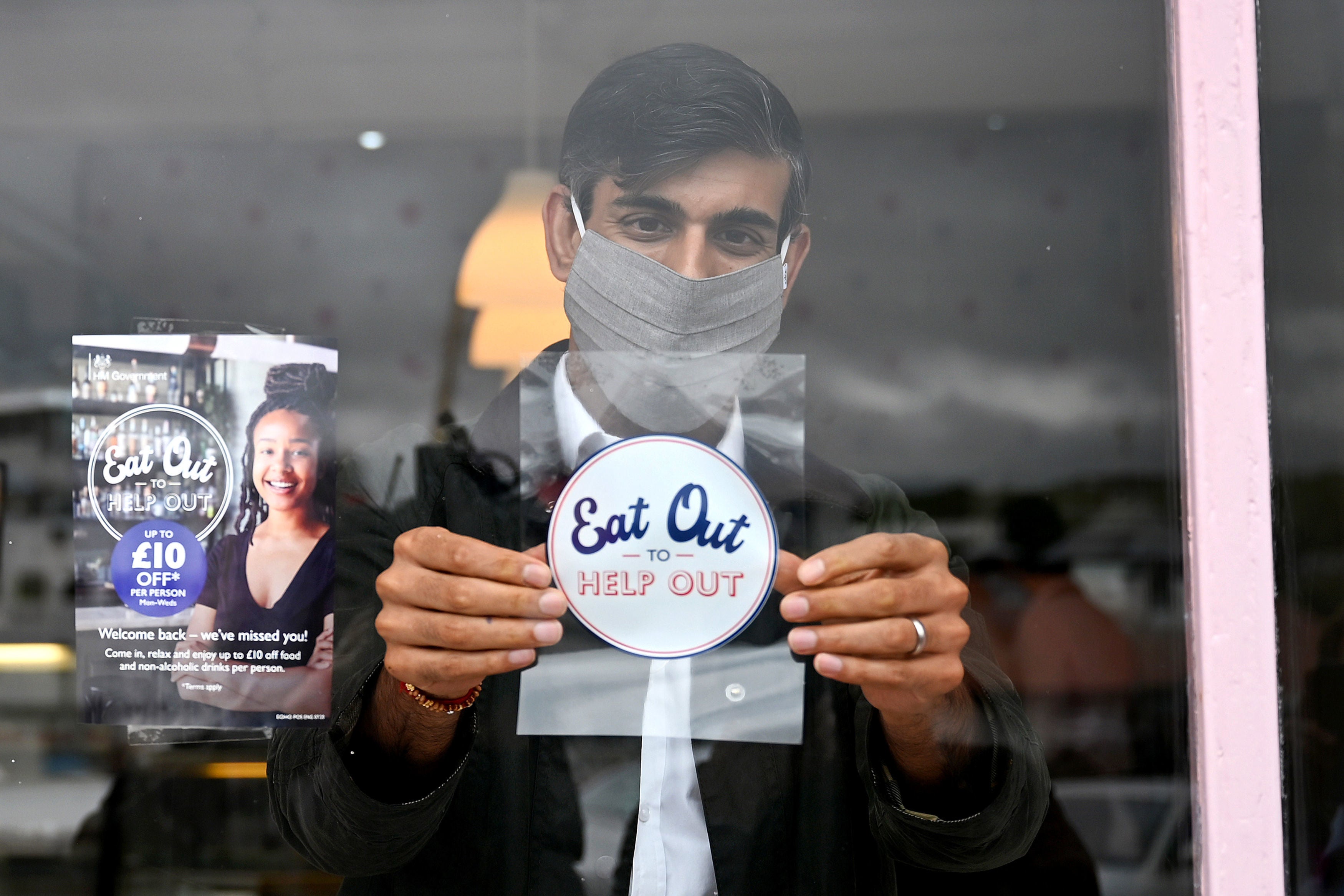Inflation rises as Rishi Sunak’s Eat Out to Help Out scheme ends
Prices at restaurant and hotels rebounded 3 per cent in September after the scheme ended

Your support helps us to tell the story
From reproductive rights to climate change to Big Tech, The Independent is on the ground when the story is developing. Whether it's investigating the financials of Elon Musk's pro-Trump PAC or producing our latest documentary, 'The A Word', which shines a light on the American women fighting for reproductive rights, we know how important it is to parse out the facts from the messaging.
At such a critical moment in US history, we need reporters on the ground. Your donation allows us to keep sending journalists to speak to both sides of the story.
The Independent is trusted by Americans across the entire political spectrum. And unlike many other quality news outlets, we choose not to lock Americans out of our reporting and analysis with paywalls. We believe quality journalism should be available to everyone, paid for by those who can afford it.
Your support makes all the difference.The cost of living rose last month as the government’s Eat Out to Help Out scheme came to an end, making restaurants and cafes more expensive.
Inflation increased to 0.5 per cent from 0.2 per cent in August, the Office for National Statistics reported. However, the rise in consumer prices is still well below the Bank of England’s target annual rate of 2 per cent.
Rishi Sunak’s £500m subsidy for half-price restaurant meals had helped reduce inflation to its lowest level in almost five years.
Prices at restaurants and hotels rebounded 3 per cent in September after the scheme ended.
The cost of second-hand cars rose as people continued to shun public transport, while fuel prices were also up.
Petrol cost 113.3p a litre in September, on average, up from 113.1p in August, but below 127.3p seen a year earlier.
Jonathan Athow, deputy national statistician at the ONS, said: "The official end to the Eat Out to Help Out scheme meant prices for dining out rose during September, partially offsetting the sharp fall in inflation for August.
"Air fares would normally fall substantially at this time due to the end of the school holidays, but with prices subdued this year, as fewer people have been travelling abroad, the price drop has been less significant.
"Meanwhile, as some consumers look for alternatives to using public transport, there was an increased demand for used cars, which saw their prices rise."
Including housing costs, the Consumer Prices Index was 0.7 per cent in September, up from 0.5 per cent in August.
September’s CPI is also used in the calculation for state pensions, although the triple-lock rule means the payout will be the highest figure out of CPI, earnings growth for the year to July, or 2.5 per cent.
State benefits are likewise decided by the September inflation figure, meaning payments will rise 0.5 per cent next April, which is far less than this year’s 1.7 per cent increase.

Join our commenting forum
Join thought-provoking conversations, follow other Independent readers and see their replies
Comments